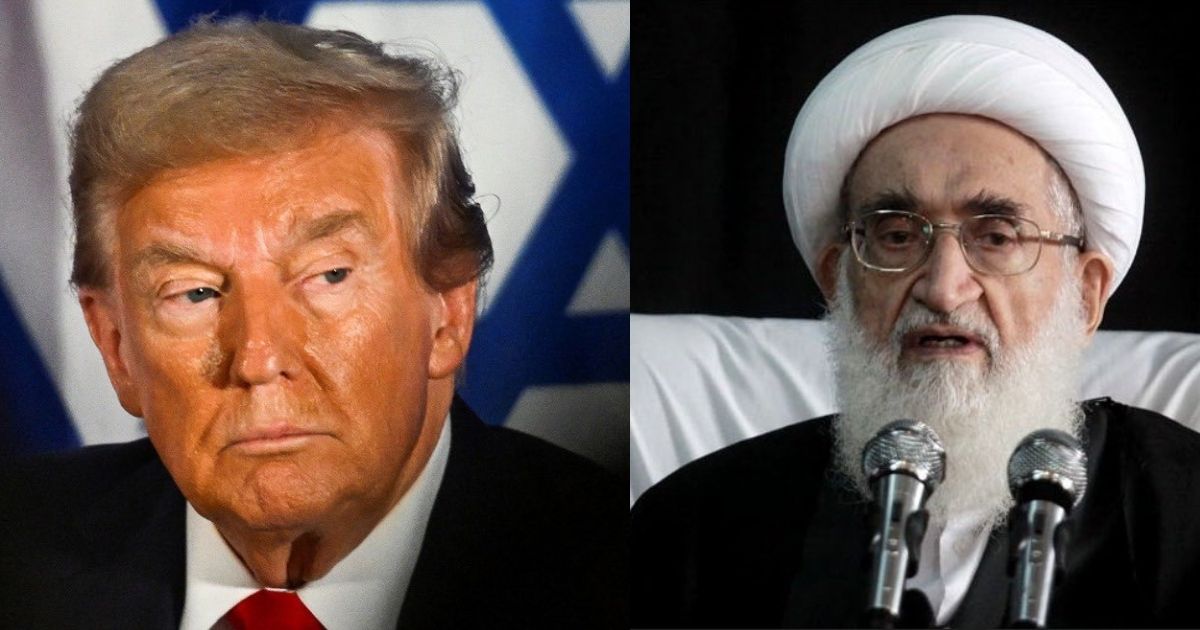In recent Iran–Israel conflicts, the US became an unwilling participant when Donald Trump decided to strike several nuclear sites in Iran. Though a ceasefire was announced, and Donald Trump took full advantage of it, the situation has just turned on its head.
In a chilling escalation of geopolitics, Iran’s Grand Ayatollah Naser Makarem Shirazi has issued a fatwa against US President Donald Trump and Israeli Prime Minister Benjamin Netanyahu. He has labelled both these leaders as “Muharib”. It is a term in Shia Islamic law that refers to those who wage war against God. Shirazi’s fatwa calls for Muslims to view Trump and Netanyahu as legitimate targets for death.
This decree now brands them “enemies of God.” It also cites their involvement in recent military actions as justification for the severe punishment.
Donald Trump, in one of his social media posts, called the Iran-Israel conflict the “12-day war.” He glorified America’s role in striking down Iran and its alleged attempts to gain nuclear power for military purposes. During this 12-day war, US and Israeli forces coordinated a major offensive operation. They targeted Iranian nuclear facilities and military strongholds. However, these embellished posts have now brought bad luck to the president.
Grand Ayatollah Naser Makarem Shirazi of Iran has issued a fatwa, which is considered a legal ruling on a point of law in Islam, calling for the assassination of U.S. President Donald J. Trump as well as Israeli Prime Minister Benjamin Netanyahu and other senior officials in… pic.twitter.com/Wd86FxtSYZ
— OSINTdefender (@sentdefender) June 29, 2025
This religious edict or fatwa was released just after the culmination of the said war. The operation also included strategic strikes on sites such as Fordo, Natanz, and Isfahan. These are critical locations of Iran’s nuclear infrastructure.
According to initial US intelligence, the operation likely delayed Iran’s nuclear ambitions by only a few months. Even after inflicting so much damage and destroying their relationships with European allies, the US was not able to make much of a difference.
President Trump had justified the operation as a defensive move. He claimed it was necessary to neutralize a growing threat. He also claimed that the preemptive action was necessary to protect American and allied interests in the region.
However, now Iran is ready to respond without breaking the ceasefire. Iran has turned to religious and symbolic retaliation. The fatwa represents a dangerous path that combines faith-based extremism and political vendetta.
Fatwas last forever.
Khomeini placed a fatwa on Salman Rushdie in the 1980s, and he lost his eye in a stabbing attack decades later. Now, Trump is their target.
Fatwas are no joke. These demons mean it.
This is the price we all pay for allowing the regime in Iran to survive. pic.twitter.com/75s2Z2LJDM
— 𝗡𝗶𝗼𝗵 𝗕𝗲𝗿𝗴 ♛ ✡︎ (@NiohBerg) June 29, 2025
This is not the first time Iran has used religious authority through fatwas to cause harm. The most notorious example remains the 1989 decree against British-Indian author Salman Rushdie. It was issued by Supreme Leader Ayatollah Ruhollah Khomeini over Rushdie’s book The Satanic Verses.
The edict had global ramifications. It led to the years of violence, a bounty on Rushdie’s life, and a lasting precedent for the use of religious rulings as political weapons.
The fatwa might not change Pentagon policy, but it changes the psychological battlefield.
It energizes militias, radicalizes narratives, and flips the moral compass for millions who now view this conflict as sacred; not strategic.
— Brian Allen (@allenanalysis) June 30, 2025
Now, there is a fear from analysts and diplomats that the fatwa against Trump could inspire similar lone-wolf attacks or state-sponsored plots.
US security agencies have not issued a formal response to the fatwa. However, the sources confirm that the Secret Service and intelligence communities are assessing the seriousness of the threat. Trump himself has remained defiant, reiterating that no aid or negotiation will be extended to Iran under his watch or influence.









